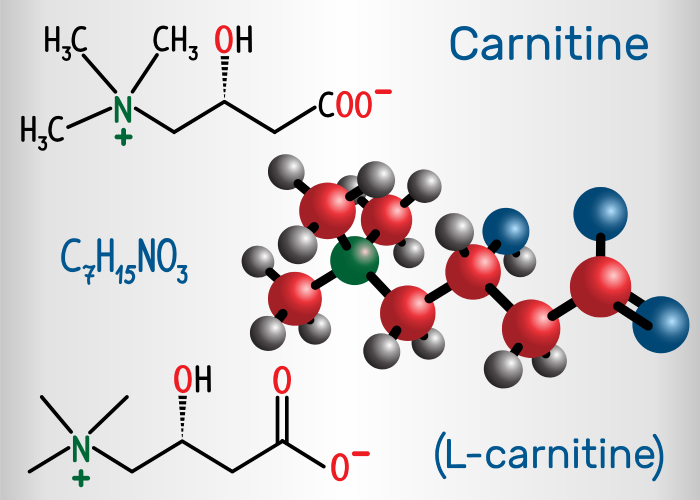Study Reveals Potential Benefits of Combined Supplementation on Performance
Recent research conducted by scientists at Suranaree University of Technology in Thailand suggests that a daily regimen of ginseng extract and L-carnitine may enhance exercise endurance. The study, published in the journal Nutrients, indicates that this combination could improve energy metabolism, mitigate oxidative stress, and positively influence key genes involved in mitochondrial biogenesis.
Both ginseng and L-carnitine have been subjects of extensive research for their potential ergogenic effects, primarily due to their antioxidant properties which can help counteract exercise-induced oxidative stress. Previous studies have shown that ginseng can boost endurance, reduce fatigue, and improve recovery times, likely through increased energy production and enhanced muscle function. L-carnitine, on the other hand, plays a crucial role in transporting long-chain fatty acids into mitochondria for energy production, with research demonstrating its positive impact on exercise performance, particularly in endurance activities.
The Thai researchers sought to explore the potential synergistic benefits of combining these supplements and investigate their effects on various physiological parameters, including glycogen content in the liver and muscles, blood biochemistry, antioxidant enzyme activity, and gene expression.
The study involved 50 male Wistar rats divided into ten groups, including a control group and various treatment groups receiving either low (250 mg/kg per day) or high (500 mg/kg per day) doses of ginseng extract, L-carnitine, or a combination of both. Half of the groups underwent a 16-day exercise regimen, while the other half remained sedentary. Endurance was measured at the conclusion of the experiment using a tail-suspended forced swimming test.
Results showed that both ginseng extract and L-carnitine supplementation significantly improved exercise performance in trained and untrained rats, with enhanced endurance observed when taken separately and in combination. In the exercise groups, the high dose of L-carnitine (500 mg/kg) appeared to be most beneficial, resulting in the longest post-exhaustion swimming time of 63 minutes, followed by the high dose of ginseng extract at 47 minutes.
Interestingly, sedentary rats receiving ginseng or L-carnitine tended to gain less weight than controls, with L-carnitine showing a particularly pronounced effect. However, in the low-dose exercise groups, rats supplemented with 250 mg/kg of ginseng or L-carnitine gained significantly more weight than rats in other groups, suggesting that the effects on weight gain may vary depending on exercise status.
The supplements also appeared to increase muscle and liver glycogen levels, a crucial factor for exercise performance as it fuels energy production. While no significant differences were found in blood glucose or insulin levels, a notable increase in creatine levels was observed in the sedentary high-dose groups, potentially indicating an impact on kidney function.
Finally, both supplements seemed to upregulate AMPK and PGC-1α gene expression, which play important roles in regulating energy metabolism.
The researchers conclude that ginseng and L-carnitine may offer potential benefits for exercise performance and metabolic health. However, they emphasize the need for further studies to evaluate the long-term effects of these supplements.
Commentary by SuppBase columnist Alice Winters

The recent study exploring the combined effects of ginseng extract and L-carnitine on exercise endurance presents intriguing findings that warrant closer examination. While the results are promising, it’s crucial to approach them with a critical eye and consider their implications for both athletes and casual fitness enthusiasts.
First and foremost, the use of an animal model, while common in preliminary research, limits the direct applicability of these findings to human subjects. The physiological differences between rats and humans, particularly in terms of metabolism and endurance capacity, necessitate caution when extrapolating these results to human performance.
The dosage levels used in this study are particularly noteworthy. The researchers employed doses of 250 mg/kg and 500 mg/kg, which, when translated to human equivalent doses, would be substantial. For context, a 70 kg human would need to consume 17.5 to 35 grams of these supplements daily to match the rat dosages. This is far beyond typical supplementation levels and raises questions about the practicality and safety of such high doses in human subjects.
The observed improvements in endurance are certainly encouraging, particularly the significant increase in swimming time for the high-dose L-carnitine group. However, it’s important to note that forced swimming tests in rats, while a standard measure of endurance in animal studies, may not directly correlate with human endurance activities like running or cycling.
The differential effects on weight gain between sedentary and exercising groups are intriguing and highlight the complex interplay between supplementation and physical activity. This complexity underscores the need for more nuanced, long-term studies in humans to fully understand how these supplements might affect body composition under various conditions.
The increase in muscle and liver glycogen levels is a potentially valuable finding, as glycogen storage is crucial for endurance performance. However, the significant increase in creatine levels in the sedentary high-dose groups is a red flag that cannot be ignored. Elevated creatine levels can indicate kidney stress or dysfunction, and this finding emphasizes the need for careful monitoring and further investigation of the long-term effects of high-dose supplementation on renal function.
The upregulation of AMPK and PGC-1α gene expression is perhaps one of the most exciting aspects of this study. These genes play crucial roles in energy metabolism and mitochondrial function, which are key factors in endurance performance. However, gene expression changes don’t always translate directly to functional improvements, and more research is needed to understand how these molecular changes might manifest in actual performance gains.
In conclusion, while this study provides valuable insights into the potential synergistic effects of ginseng and L-carnitine on exercise endurance, it also raises important questions and concerns. The high doses used, the animal model employed, and the observed increase in creatine levels all suggest that caution is warranted. Before athletes or fitness enthusiasts consider incorporating these supplements into their regimens, especially at high doses, we need to see robust, long-term studies in humans that not only confirm the performance benefits but also thoroughly evaluate safety profiles.
Moreover, it’s crucial to remember that supplements should never be viewed as a magic bullet for performance enhancement. A well-balanced diet, proper training, adequate rest, and overall lifestyle factors remain the cornerstone of athletic performance and general health. As we continue to explore the potential of ergogenic aids like ginseng and L-carnitine, we must always prioritize safety and adopt a holistic approach to performance optimization.



